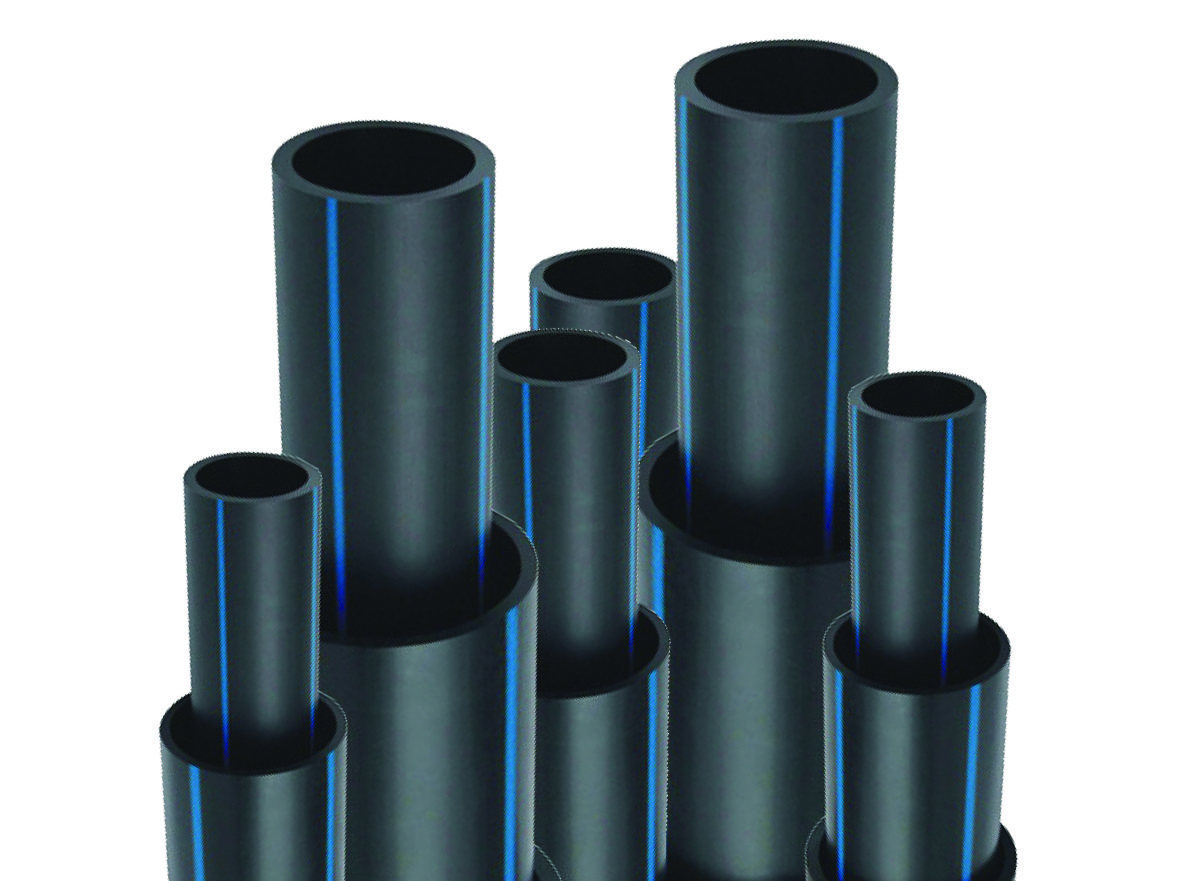Comprehending the Key Benefits of HDPE Pipeline for Water and Wastewater Monitoring
The usage of HDPE pipe in water and wastewater administration presents many benefits that merit factor to consider. Its phenomenal longevity and lengthy life expectancy make it a favored choice for many jobs. Furthermore, the material's resistance to rust and chemical damage improves its integrity in various settings. Nonetheless, the benefits expand beyond simply durability and resistance. Exploring its cost-effectiveness and environmental influence reveals a lot more engaging reasons for its extensive fostering in modern facilities
Remarkable Toughness and Long Life

HDPE pipeline sticks out for its remarkable resilience and long life, making it a favored selection in water administration systems. Built from high-density polyethylene, these pipes can withstand substantial stress and tension, making sure trusted efficiency with time. Their durable nature enables them to endure extreme environmental problems, consisting of temperature level changes and soil movements, which can cause other materials to fail.
The life-span of HDPE pipelines commonly surpasses 50 years, offering a cost-efficient service for districts and sectors alike. Furthermore, the material's lightweight homes simplify installation, reducing labor prices and timeframes. This sturdiness minimizes the demand for regular repair work or substitutes, additionally enhancing its financial charm.
In water monitoring applications, the integrity of HDPE pipelines implies less interruptions and boosted service connection, making them important to lasting facilities development. The combination of resilience and long life solidifies HDPE's function as a cornerstone in reliable water administration remedies.

Resistance to Deterioration and Chemical Damages
While numerous products catch corrosion and chemical damage gradually, HDPE pipelines display impressive resistance, making them perfect for different water monitoring applications. This resilience stems from the molecular structure of high-density polyethylene, which is inherently non-reactive and does not rust like steels or weaken from exposure to harsh chemicals. As a result, HDPE is extremely efficient in atmospheres with hostile substances, such as wastewater systems that may include acids, bases, and organic solvents.
Furthermore, HDPE pipes can stand up to environmental aspects such as soil level of acidity and saline problems, better boosting their viability for varied applications (Texas hdpe pipe manufacturer). Their ability to maintain architectural honesty over time reduces the threat of leakages and failures, which is vital in making sure the security and dependability of water circulation and wastewater management systems. The resistance to rust and chemical damage substantially adds to the overall effectiveness and long life of HDPE piping services.
Cost-Effectiveness and Economic Advantages
When taking into consideration the financial ramifications of water management systems, the cost-effectiveness of HDPE pipes becomes evident. These pipes offer reduced setup and maintenance expenses contrasted to conventional materials like steel or concrete. Their light-weight nature streamlines transportation and setup, causing decreased labor costs. Furthermore, HDPE pipes show a long life expectancy, typically going beyond 50 years, which equates to less replacements and long-term financial savings.
Additionally, the resistance of HDPE to deterioration and chemical damage reduces the demand for costly repair work and replacements. The pipes likewise support reliable water circulation, reducing energy expenses related to pumping systems. By minimizing leaks and water loss, HDPE pipelines contribute to considerable financial advantages for districts and sectors alike. Overall, the initial investment in HDPE piping can yield substantial monetary returns over the life expectancy of the water administration system, making it a sensible option for sustainable framework advancement.
Ecological Sustainability and Minimized Effect

Versatility and Flexibility in Installment
Since of their unique buildings, HDPE pipelines use exceptional flexibility and versatility in setup, making them suitable for a wide variety of applications. Their light-weight nature permits much easier handling and transport, decreasing labor prices and setup time. HDPE pipelines can be bent and shaped to fit different surfaces and job needs, which is particularly valuable in challenging atmospheres.
In addition, their resistance to corrosion and chemical damages allows for installment in diverse settings without the requirement for specialized safety coatings. The ability to fuse joints produces a continual, leak-free system, boosting the general honesty and reliability of the installation. HDPE's versatility likewise suits ground movement, decreasing the danger of damage in areas susceptible to moving dirt. On the whole, these characteristics make HDPE pipes not just functional yet also a recommended choice for water and wastewater administration systems.
Regularly Asked Inquiries
How Does HDPE Pipe Compare to PVC in Water Management Applications?
HDPE pipe uses premium versatility, resistance to rust, and longevity contrasted to PVC. Its lighter weight facilitates easier installation, while its lengthy life-span reduces replacement expenses, making HDPE a favored choice in read more water management applications.
What Is the Life-span of HDPE Water Lines Under Normal Conditions?
Under common conditions, HDPE pipes can have a life-span varying from 50 to 100 years. Their longevity and resistance to deterioration add to their long-lasting performance in different applications, making them a reputable option for facilities.
Are HDPE Pipes Recyclable After Their Life Span?
Yes, HDPE pipelines are recyclable after their life span. hdpe pipe fittings Midland TX. They can be refined and repurposed into new items, substantially decreasing ecological effect and promoting sustainability within the sector, making them a green option for piping remedies
What Is the Setup Refine for HDPE Pipes?
The installment process for HDPE pipelines involves website prep work, trenching, pipeline fusion or mechanical joining, backfilling, and pressure screening. Correct techniques guarantee a sturdy and efficient system for moving water and wastewater efficiently.
Can HDPE Pipeline Be Made Use Of for Both Drinkable and Non-Potable Water Systems?
Yes, HDPE pipes can be made use of for both safe and clean and non-potable water supply. Their convenience, durability, and resistance to rust make them suitable for different applications, guaranteeing risk-free and effective transportation of water in various contexts.